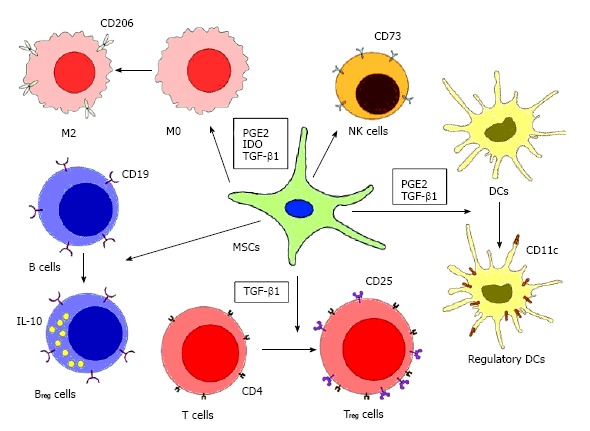Figure 1.

Immunosuppression by mesenchymal stem cells. MSCs suppress innate and adaptive immune responses by enhancing regulatory immune cells with tolerogenic properties. MSCs suppress macrophages by favoring monocyte polarization to anti-inflammatory M2 macrophages, increasing the production of IL-10, and decreasing the production TNF-α and IL-12. MSCs can also regulate DCs by downregulating the expression of MHC, CD40, CD80, CD83 and CD86, thus, diminishing their antigen presenting ability, while upregulating the expression of IL-10. MSCs can reduce the NK cell cytotoxicity and decrease their production of TNF-α and IFN-γ. Treg and Breg cells can be induced by MSCs, further increase the production of anti-inflammatory cytokines (IL-10 and TGF-β1). However, the mechanisms of how Breg cells are induced by MSCs are still not clear. MSCs: Mesenchymal stem cells; TNF: Tumor necrosis factor; IL: Interleukin; NK: Natural killer; DCs: Dendritic cells; IFN-γ: Interferon-γ; Treg: Regulatory T; Breg: Regulatory B; TGF: Transforming growth factor; PGE2: Prostaglandin E2; IDO: Indoleamine 2,3-dioxygenase.
